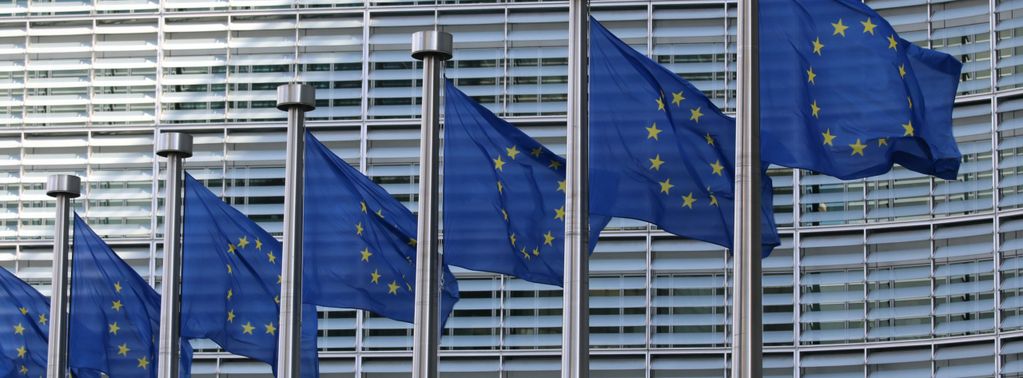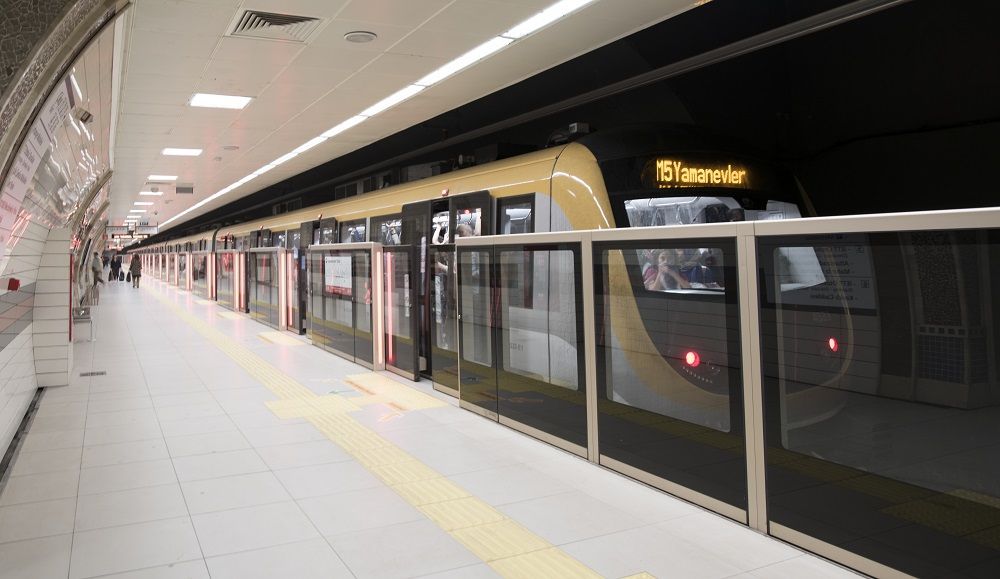
UITP Statement: Support local public transport in the energy crisis
New UITP Statement calling on the EU Commission and Member States to support public transport in the energy crisis
The European Commission has recognised public transport as the backbone of urban mobility and highlighted its contribution to saving energy. Fulfilling this role means being available and affordable for all citizens. But the current energy crisis and the galloping inflation have disastrous consequences for the local public transport sector, impacting the mobility of citizens and the fight against climate change.
The sector’s quick reactions to recent challenges demonstrate the unfailing commitment of public transport to guarantee the mobility of European citizens. Throughout the pandemic, essential services were kept running even with fare revenues and ridership numbers plummeting. At this moment, the sector is still confronted with multiple challenges. Despite ongoing efforts to bring back passengers, ridership has not yet reached pre-pandemic levels. Staff shortage is a serious concern, especially concerning drivers. Various reflections and initiatives on tariffs are also ongoing across Europe. Overall, exploding costs, fewer passengers, lower revenues and a growing staff shortage are making it hard to maintain the current service level when the goal should be to increase and improve the offer.
These issues coincide with one another at a time where Europe urgently needs to reduce the emissions of the transport sector. Despite the energy crisis, the goals of the Green Deal need to remain firmly in place. Support for change is high: According to the most recent Eurobarometer survey, 89 per cent of EU citizens are in favour of increasing their country’s investments in public transport infrastructure. But, if unaddressed, the impact of increasing energy prices on public transport will dramatically affect the sector’s capacity to continue its role as the backbone of urban mobility and achieve modal shift.
See the full statement here or continue reading
Energy expenses represent the second highest operating costs of public transport. Metros, trams, buses, and local trains – they all cannot run without electricity or fuels. We need to ensure that the public transport sector does not have to reduce its offer or pass the high costs on to passengers. Especially during an energy crisis, people need to have affordable mobility options.
Local public transport operators and authorities need strong support from European and national leaders to weather this crisis. Beyond the proposal for restructuring the EU’s energy market and decoupling electricity and gas prices announced in the 2023 Work Programme, UITP calls for coordinated measures to secure an undisrupted and affordable energy supply for public transport:
- The Commission and Member States should acknowledge public transport as a strategic priority. Both the sector’s needs and its contributions to saving energy and providing affordable mobility options to households should be highlighted in future crisis-related communications. On the European level, earmarking revenues from the revamped Emission Trading System would be a highly symbolic measure.
- Energy supply to public transport companies should be prioritised in case of a shortage. Public transport actors provide energy-efficient mobility and are committed to decreasing energy consumption without reducing transport services. They need to be considered by Member States in their national crisis responses.
- Member States should clarify how the increasing costs for providing public services will be covered. Operators and authorities need as much certainty as possible to plan for the months to come.
- European and national leaders should enter in a dialogue with public transport stakeholders. Regular exchanges are needed to identify additional appropriate measures for the local level.
Impact of the energy crisis on the public transport sector: Examples from European UITP members
- Austria
Vienna’s local public transport operator Wiener Linien is facing significant energy cost increases. Electricity costs are expected to increase by €27 million in 2022 and by €110 million in 2023. Costs for district heating and natural gas are similarly increasing, by an estimated €3 million in 2022 and €3.5 million in 2023.
In terms of national financial support during the crisis, the reduction of a levy will lower costs for electricity by €4 million in 2022 and €2 million in 2023. Wiener Linien does not currently benefit from any of the Austrian government’s other financial support programmes.
Among other energy-saving measures, Wiener Linien is lowering temperatures in metros and trams by 2 degrees, optimising station lighting and ventilation systems, and reducing lighting e.g. of artwork. These measures are expected to negatively influence passenger comfort.
- Finland
The cost of the services procured by Finnish cities and city region public transport authorities is tied to the Finnish cost index of bus transport, which has increased more than 10 per cent during the last year. Yet, authorities have kept the costs for the user affordable and in many cases the same since 2014/15. This results in a financing gap.
In Finland, gas used by public transport is not on the list of secured supplies, while gas used by households is.
- France
Based on calculations by the French Union of Public and Rail Transport (UTP), energy costs for the rail sector doubled between 2021 and 2022 and are expected to triple in 2023.
At the request of the French Government, UTP published a guide with examples of best practices regarding energy sobriety (eco-driving, use of innovative vehicles, etc.).
For RATP (Régie autonome des transport Parisiens), the energy crisis has already had a striking impact. The Parisian public transport operator’s energy bill is expected to be 33 per cent higher in 2022 than in 2021.
- Germany
For the State of Baden-Württemberg, additional costs for diesel fuel for public transport by bus amount are estimated at €6-7 million per month in comparison to 2021. The region’s largest urban public transport operator, Stuttgarter Straßenbahnen AG, is expecting additional costs for diesel fuel of €2-3 million for 2022.
Some public transport operators with urban and regional rail systems are faced with exploding costs as their long-term contracts with fixed electricity prices are expiring and have to be renewed. While electricity prices were previously at approximately €50/MWh, they are now highly volatile and range between €400-800/MWh at energy spot markets, eight to 16 times higher than before. Several cities that are impacted by these price hikes are discussing a reduction of the public transport offer.
For 2022, the public transport operator in the city of Bochum (BOGESTRA) is expecting a 27 per cent increase in costs for electricity, gas and fuel compared to 2021. For 2023, the costs are expected to increase by 65 per cent.
The public transportation association of Schleswig-Holstein (NAH.SH) is expecting total additional expenses of around €880 for the years 2022 to 2030. This estimation is made up of a €520 million increase in energy and labour costs and prices for other products in transport contracts, as well as a €359 million increase in construction and planning costs due to supply bottlenecks, energy costs and shortage of skilled workers.
- Greece
Already during the last months of 2021, according to data provided by the Hellenic Statistical Authority, a significant increase in the prices of oil (+ 34.1 per cent), natural gas (+ 134.5 per cent) and electricity (+ 45 per cent) was observed.
The current geopolitical crisis and high inflation worsened this already unfavourable situation and increased costs are impacting the Athens Urban Transport Organisation OASA S.A. Its operator of buses and trolley buses (OS.Y) faces an average increase in the total cost of mobility fuel (traction current, diesel and CNG) of 52.35 per cent and a 30 per cent increase in the average cost of consumables (tires, motor oil etc.). For the Athens metro and tram operator, electricity costs increased by 50 per cent and national gas costs by 66 per cent.
- Italy
Production costs for public transport services increased significantly throughout Italy. National public transport association ASSTRA estimates the additional costs for fuels and traction electricity at €155 million and €509 million, respectively, for the first eight months of 2022.
National public transport association AGENS, the Association that represents the transport sector and services in Confindustria, calculated that in the first half of 2022, the average electricity price was approximately 0.437 €/kWh compared to 0.207 €/kWh in 2019, an increase of more than 100 per cent. This dramatically increases costs for a sector that consumes about 3.4 billion kWh per year, primarily for electromobility by road and rail.
Government measures to mitigate the effects of the crisis include reduced excise duty rates for fuels, containment of methane general expenses, tax credits for methane and electricity, as well as €140 million to cover the higher fuel costs of the second and third quarter of 2022.
In 2022, ATM (Azienda Trasporti Milanesi) benefitted both from the positive effects of electricity procurement contracts signed in 2021 and a regulation on system charges. However, with the reintroduction of system charges, ATM expects a significant rise in electricity costs from around €45 million in 2022 to €140-150 million in 2023. Fuel costs for ATM – net of excise duty – went from €19.5 million in 2021 to €27 million in 2022 and heating costs rose from €3.8 million to €9.5 million.
- Netherlands
KNV (Royal Dutch Transport) estimates that for urban and regional public transport in the Netherlands, energy costs (electricity and natural gas) will increase by €180 million in 2023 compared to 2021.
- Portugal
For Metropolitano de Lisboa, the cost per unit of the current electricity supply contract (in force until 30 April 2023) increased by about 150 per cent (considering the network fares) in relation to the previous contract.
With regards to natural gas, there was an increase of approximately 600 per cent (considering only the energy component) and about 320 per cent (including the networks fares) of the cost per unit of the current supply contract (in force until 31 December 2022) in comparison with the previous contract.
- Spain
ATUC, the Spanish association for urban and metropolitan public transport, expects an overall increase of energy costs by €702.5 million in 2022 – €207.5 million for diesel, gas and electricity used in buses and €495 million for energy used in the railway sector.
Since the beginning of the war in Ukraine, electricity prices in Spain have skyrocketed, going up to more than 300 per cent of the January 2021 price level. For Transports Metropolitans de Barcelona (TMB), natural gas prices were controlled until 2022 due to a long-term contract. Since then, TMB is paying free market prices, with similar results as for electricity prices.
The cost of TMB’s energy supplies during the nine first months of 2022 was €84.7 million, amounting to an increase of 236 per cent over the 2021 cost (€35.7 million) and 214 per cent over the 2022 budget (€39.3 million).
TMB has implemented energy-saving measures and will keep services running at 100 per cent throughout 2022.
Contact
UITP

UITP

Lucie PETERSEN
Senior European Policy Expert Bus/Road transport, Energy and Fuels - Seconded by VDV[email protected]













